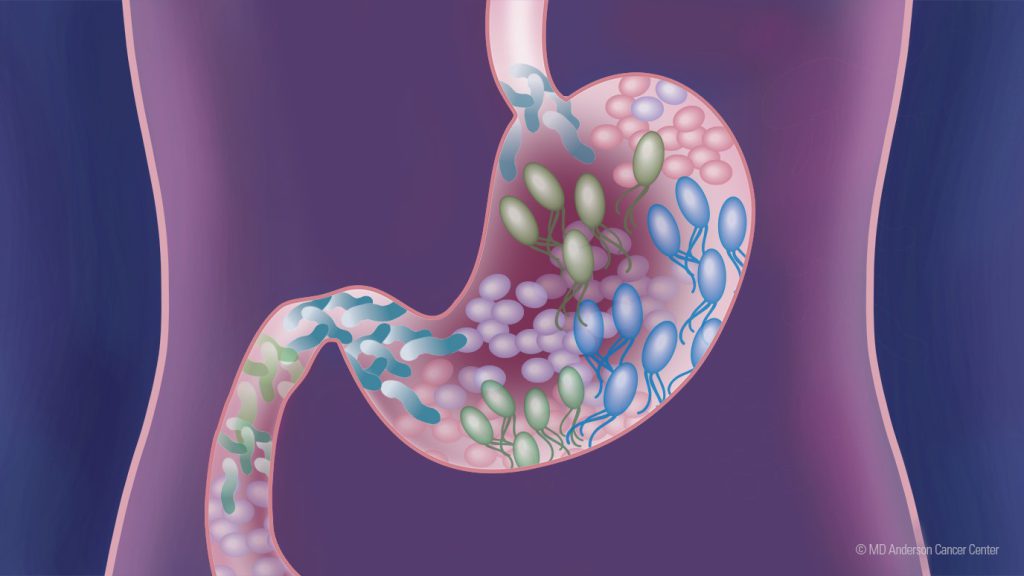When you hear the word “bacteria,” you might think of disease and infection. But did you know that not all bacteria are harmful? In fact, many bacteria are essential for your health and play a crucial role in digestion, immunity, and even mental well-being.
So, why are some bacteria good for you? Let’s explore the hidden heroes of health and how they help your body function! 🚀
🔬 What Are Bacteria?
Bacteria are microscopic single-celled organisms that live everywhere—on your skin, in your gut, and even in extreme environments like deep-sea vents. They come in different shapes, such as:
🔹 Cocci (round-shaped)
🔹 Bacilli (rod-shaped)
🔹 Spirilla (spiral-shaped)
While some bacteria cause infections (pathogens), others are beneficial and essential for life.
🏥 The Role of Good Bacteria in Your Body
Your body is home to trillions of bacteria, collectively known as the microbiome. These bacteria:
✅ Support Digestion – Breaking down food and absorbing nutrients
✅ Boost Immunity – Fighting harmful microbes
✅ Protect the Skin – Preventing infections
✅ Enhance Mental Health – Producing neurotransmitters like serotonin
Good bacteria outnumber harmful bacteria in a healthy body, creating a balanced ecosystem!
🦠 The Gut Microbiome: Your Inner Health Army
Most of the beneficial bacteria live in your gut, particularly in the intestines. This community of microbes is called the gut microbiome, and it plays a vital role in digestion and immunity.
🔹 How Good Bacteria Help Your Gut:
🍽️ Digesting Fiber – Breaking down plant-based foods that the body cannot digest.
💪 Producing Vitamins – Some bacteria make essential vitamins like Vitamin K and B vitamins.
🛡️ Fighting Harmful Bacteria – Good bacteria crowd out bad bacteria, preventing infections.
🧠 Brain-Gut Connection – Some gut bacteria help produce serotonin, a chemical that boosts mood!
Fun Fact: Over 90% of serotonin (the “happy hormone”) is made in the gut, not the brain! 🧠💖
🏆 The Most Common Good Bacteria
Many beneficial bacteria belong to the groups Lactobacillus and Bifidobacterium. Let’s meet some of them!
1️⃣ Lactobacillus (The Digestive Helper) 🥛
- Found in yogurt, cheese, and fermented foods.
- Helps digest lactose (milk sugar) and prevents diarrhea.
- Strengthens the immune system.
2️⃣ Bifidobacterium (The Immune Booster) 🌿
- Found in the large intestine and fermented foods.
- Supports digestion and prevents harmful bacteria from growing.
- Reduces symptoms of irritable bowel syndrome (IBS).
3️⃣ Streptococcus Thermophilus (The Yogurt Maker) 🍦
- Used in dairy fermentation (yogurt and cheese).
- Helps improve lactose digestion and gut health.
4️⃣ Bacillus Coagulans (The Anti-Inflammatory Bacteria) 🔥
- Found in probiotic supplements.
- Helps with gut inflammation and arthritis symptoms.
🍽️ Where Can You Get Good Bacteria?
You can boost your good bacteria by eating probiotic-rich foods and maintaining a healthy lifestyle.
🥗 Best Sources of Good Bacteria (Probiotics):
✅ Yogurt – Contains live cultures like Lactobacillus and Bifidobacterium.
✅ Kefir – A fermented milk drink rich in probiotics.
✅ Sauerkraut & Kimchi – Fermented cabbage with beneficial microbes.
✅ Miso & Tempeh – Fermented soy products used in Asian cuisine.
✅ Kombucha – A fermented tea packed with probiotics.
✅ Pickles (Fermented in Brine) – Natural probiotics (avoid vinegar-based pickles).
🔄 Probiotics vs. Prebiotics: What’s the Difference?
Both probiotics and prebiotics are important for gut health, but they have different roles.
| Type | What It Does | Examples |
|---|---|---|
| Probiotics 🦠 | Live bacteria that provide health benefits. | Yogurt, kefir, kimchi, sauerkraut, probiotics supplements |
| Prebiotics 🌿 | Fiber that feeds good bacteria. | Bananas, garlic, onions, oats, apples |
To keep your gut healthy, eat both probiotics and prebiotics!
💪 How Good Bacteria Strengthen Your Immune System
Good bacteria train your immune system to recognize and fight harmful invaders. They do this by:
🛡️ Blocking Pathogens – Competing with bad bacteria for space in the gut.
🧬 Producing Antimicrobial Substances – Releasing compounds that kill harmful bacteria.
🔄 Balancing the Immune Response – Preventing overactive immune reactions (which cause allergies and autoimmune diseases).
This is why a healthy gut leads to a strong immune system! 🏋️♂️💙
🚀 The Future of Good Bacteria: Probiotic Medicine
Scientists are now developing probiotic-based medicines for:
🧬 Treating Digestive Disorders – Using probiotics for IBS, Crohn’s disease, and acid reflux.
🧠 Mental Health – Probiotics are being tested for anxiety and depression (gut-brain connection).
🏥 Cancer Therapy Support – Some beneficial bacteria may help the body respond better to treatments.
⚡ Weight Management – Gut bacteria influence metabolism and fat storage.
The future of medicine could include customized probiotics for each person’s microbiome! 🚀
⚖️ Can Good Bacteria Ever Be Harmful?
While good bacteria are generally beneficial, imbalances can cause problems.
⚠️ Too Many Good Bacteria – Can lead to bloating, gas, and digestive issues.
⚠️ Weakened Immune System – In some cases, probiotics may cause infections in people with weakened immunity.
⚠️ Poor Diet Effects – Unhealthy diets can feed harmful bacteria, disrupting gut balance.
To maintain a healthy gut, focus on balanced nutrition and a variety of probiotic-rich foods!
🏁 Conclusion
Not all bacteria are bad! Good bacteria play a vital role in digestion, immunity, and even mental health. They help break down food, produce vitamins, and protect against infections.
By eating probiotic foods and maintaining a healthy lifestyle, you can support your gut microbiome and overall well-being.
So, the next time you eat yogurt or sauerkraut, remember—you’re feeding an army of tiny heroes inside your body! 🦠💪

